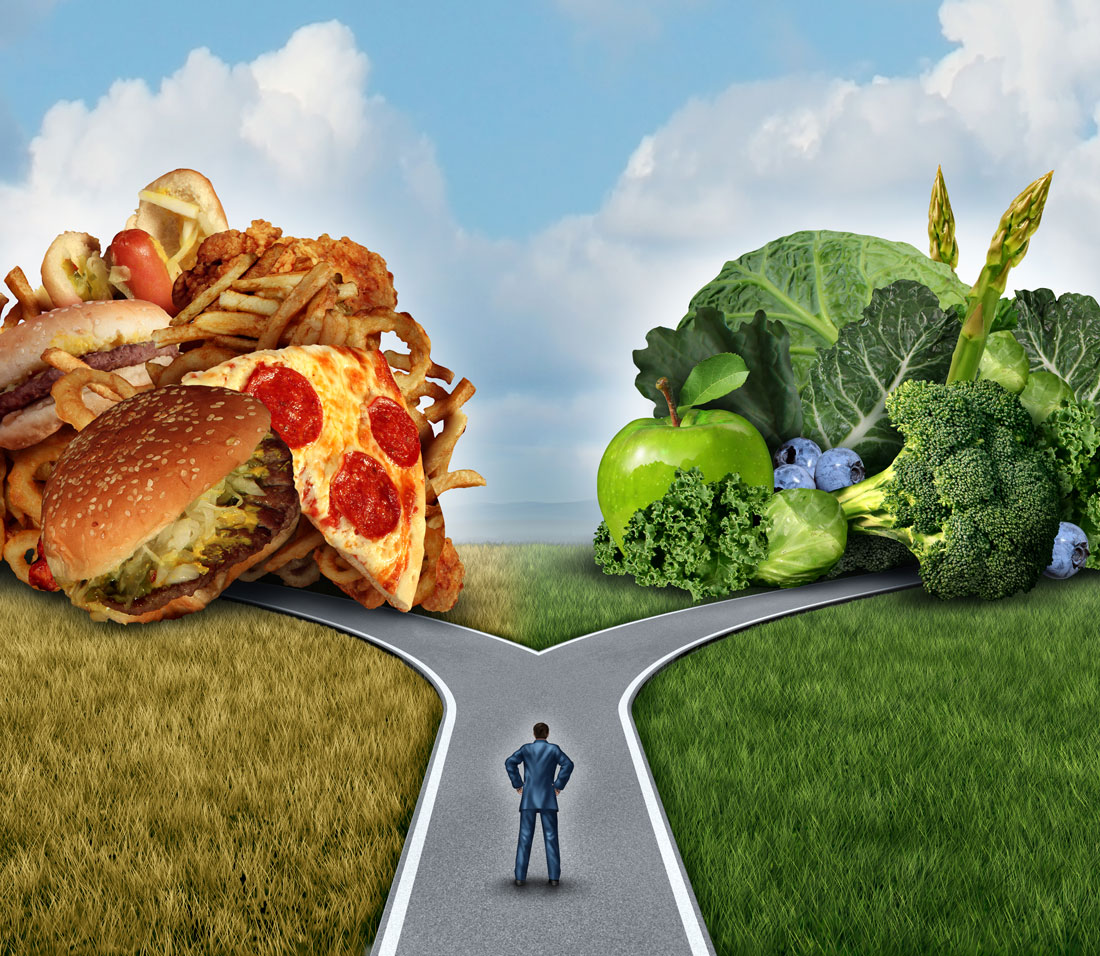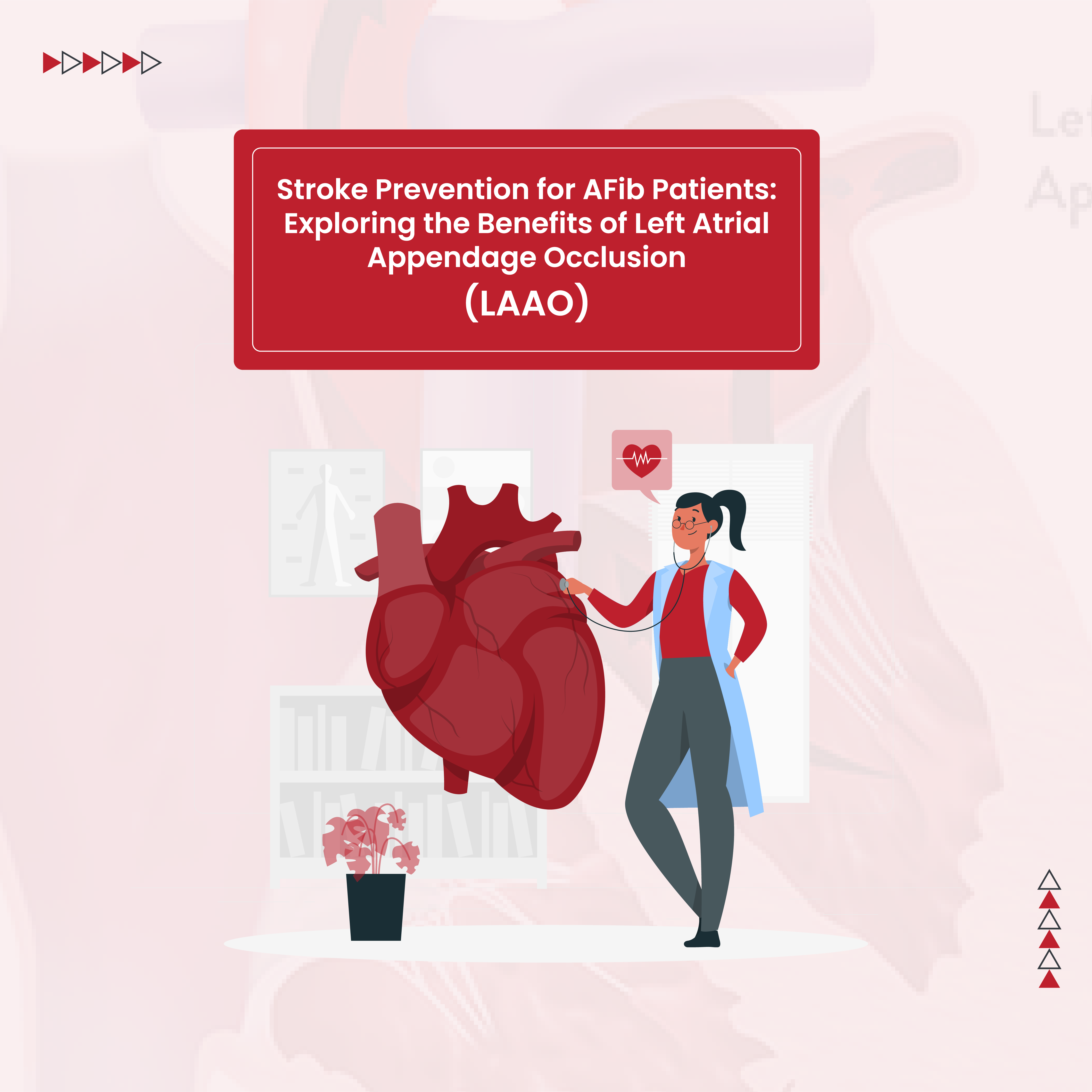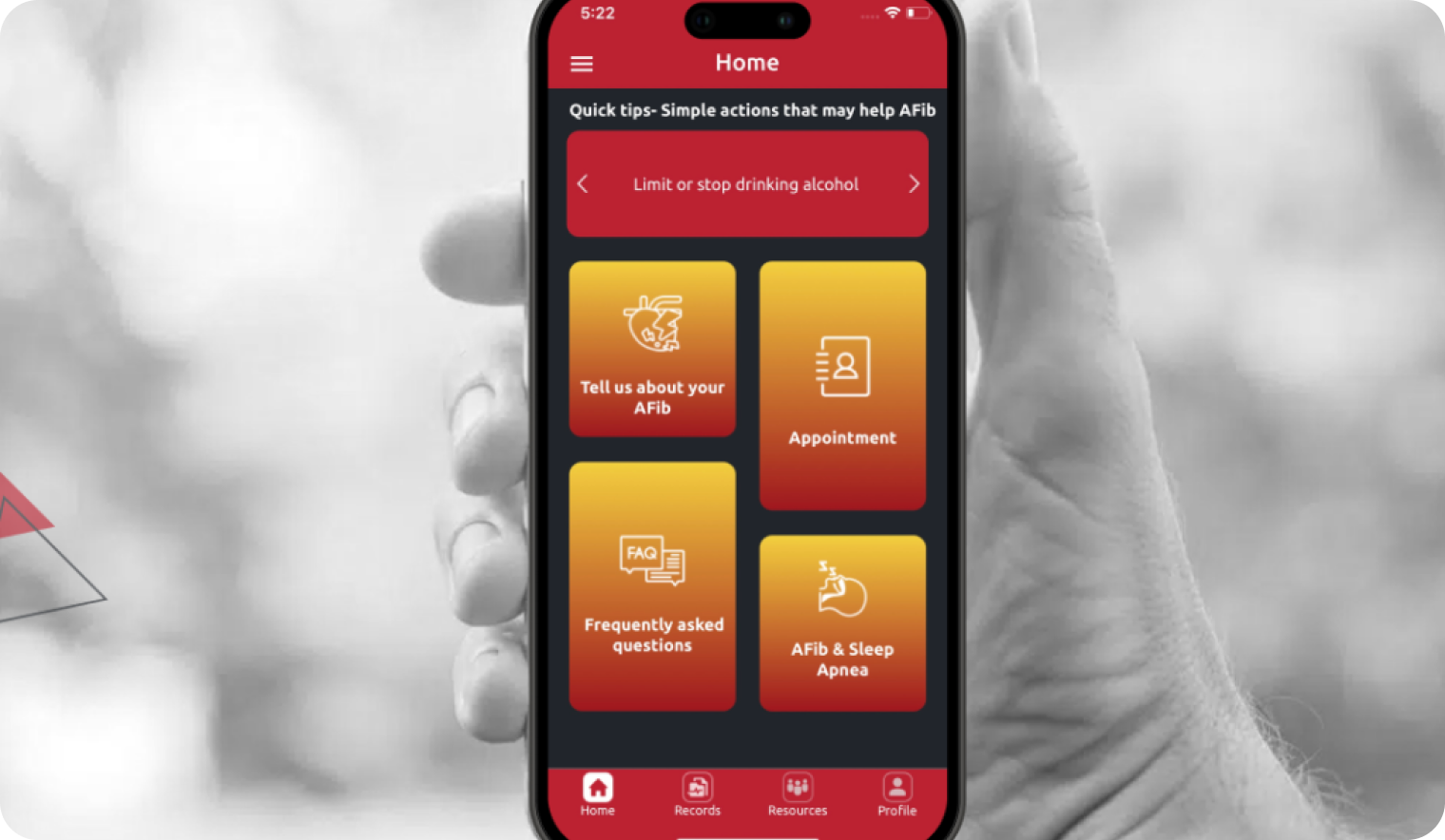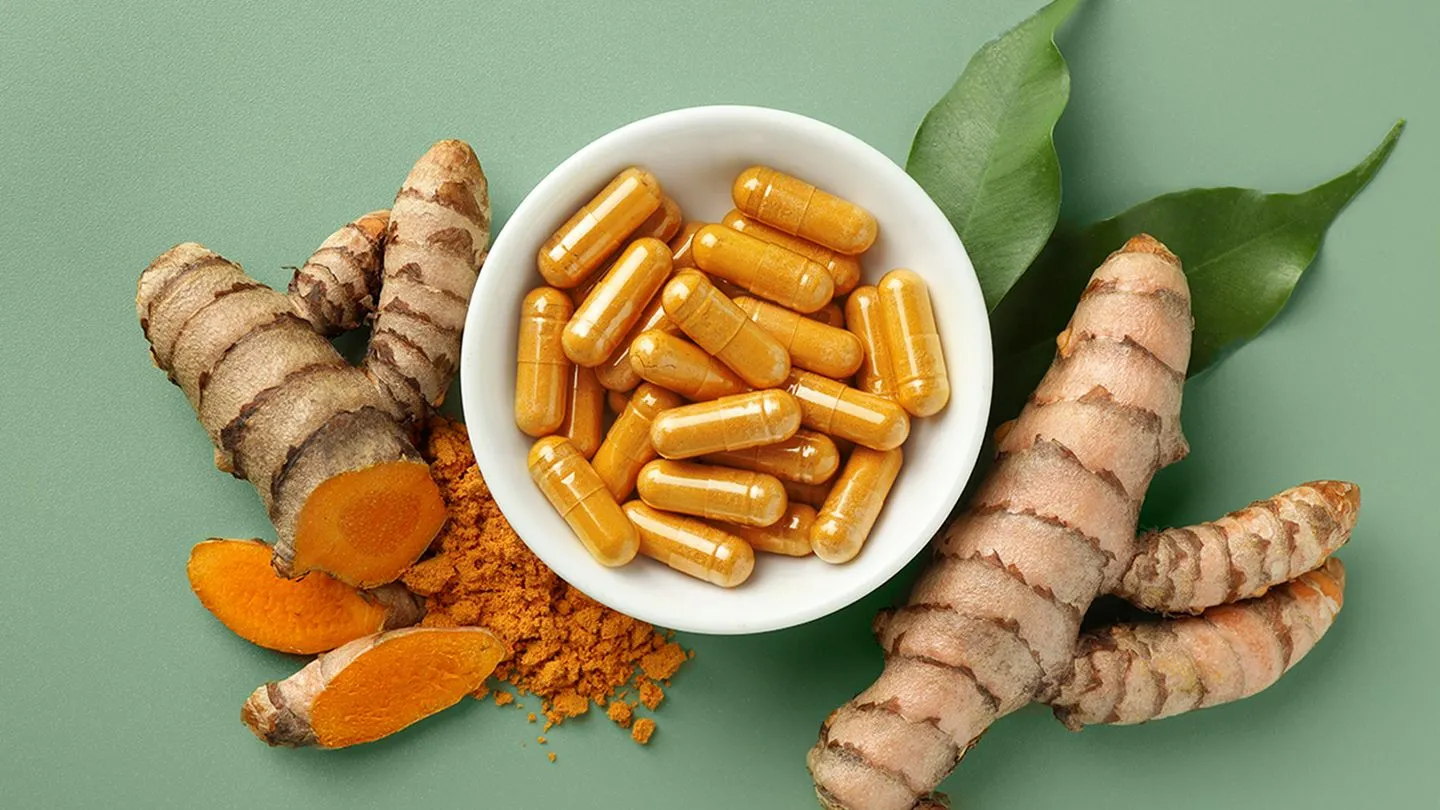Atrial fibrillation (AFib) is a common arrhythmia (irregular heartbeat) that has numerous contributing risk factors like high blood pressure, obesity, heart disease, diabetes, and sleep apnea. Each of these conditions can be significantly impacted by lifestyle modifications.
A healthy lifestyle has direct and indirect benefits on atrial fibrillation. The vitamins and minerals found in fruits, vegetables and whole grains can help decrease AFib by promoting healthy electrical functioning in the heart and decreasing systemic inflammation. A healthy diet also promotes optimal control of AFib risk factors.
In this post, our Colorado cardiologists will discuss the best diet for AFib and other Afib diet recommendations. Throughout the years of treating atrial fibrillation, Dr. Laws and his team at FixAFib have seen the effects of untreated AFib risk factors on AFib treatment efficacy. Many AFib risk factors can be positively influenced by a healthy lifestyle. Therefore Dr. Laws promotes lifestyle optimization, which includes regular exercise and healthy food, for atrial fibrillation treatment along with the traditional AFib treatments of rate control, rhythm control and stroke prevention.
What is the Best Diet for Afib?
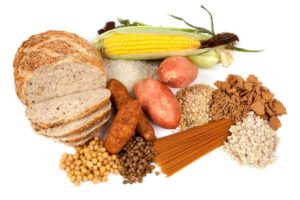 The best diet for AFib is one that is high in fruits, vegetables, whole grains, nuts, seeds, and legumes (beans). In the United States, there are a lot of fad diets that come and go. While these diets may be effective at promoting weight loss they are usually not sustainable. Therefore, as soon as you stop the diet and go back to your old eating habits, the weight comes right back. In fact, studies show that people who diet often end up weighing more after dieting than they did to begin with. Ultimately, the best diet for AFib is the one that emphasizes healthy eating habits that are sustainable for you.
The best diet for AFib is one that is high in fruits, vegetables, whole grains, nuts, seeds, and legumes (beans). In the United States, there are a lot of fad diets that come and go. While these diets may be effective at promoting weight loss they are usually not sustainable. Therefore, as soon as you stop the diet and go back to your old eating habits, the weight comes right back. In fact, studies show that people who diet often end up weighing more after dieting than they did to begin with. Ultimately, the best diet for AFib is the one that emphasizes healthy eating habits that are sustainable for you.
What foods should you avoid if you have atrial fibrillation?
- Alcohol. Chronic excessive alcohol intake (i.e. more than 1 drink/day for women and 2 drinks/day for men) and binge drinking can trigger AFib. In fact, it is estimated that 30-60% of emergency room evaluations of AFib are related to binge drinking. Even moderate alcohol intake can be harmful if you have atrial fibrillation. A study published in 2020 in the New England Journal of Medicine compared the effects of moderate alcohol consumption vs. abstinence in study participants with paroxysmal (intermittent) AFib. The study found that over the course of the six month study period, the abstinence group had fewer AFib episodes, less severe atrial fibrillation symptoms when they did have an atrial fibrillation attack, and fewer AFib hospitalizations.
- Salt. Eating too much salt can worsen high blood pressure and heart failure which can, in turn, cause AFib. You should limit your salt intake to 2 grams per day. Help make your food more flavorful by adding herbs and spices rather than salt. Store bought dressings, marinades, sauces, and canned food tend to be loaded with salt. When shopping for these items look for reduced sodium or no-salt added options.
- Sugar sweetened beverages. Sugar increases insulin secretion. Insulin is a growth hormone and contributes to obesity. Excess insulin is also associated with decreased insulin sensitivity which can lead to diabetes. Obesity and diabetes are risk factors for AFib so we recommend you skip soda, juice, and sugar-sweetened beverages like gatorade and those morning vanilla lattes.
- Caffeine. The research has not been conclusive as to whether or not caffeine can trigger AFib. However, some people have identified caffeine as a definite trigger for their atrial fibrillation, atrial flutter or heart palpitations. There have been case reports of AFib episodes after drinking Red Bull and there is a study currently underway to see if a causal link can be identified.
- Saturated and trans fats. Limit your intake of saturated and trans fats as much as possible. Examples of foods that are high in saturated fat or trans fats are red meat, egg yolks, bacon, sausage, and processed foods (i.e. crackers, chips, donuts, etc). Saturated and trans fats contribute to heart disease and systemic inflammation, both of which can increase the risk of developing atrial fibrillation.
Does drinking water help AFib?
Staying hydrated is helpful to AFib. Aim to drink at least 8 cups of water per day to stay hydrated. Dehydration is associated with low levels of electrolytes which can trigger AFib. Dehydration is more likely to occur in the setting of hot weather, exercise (especially in hot weather), illnesses which cause vomiting or diarrhea, excessive alcohol intake. In these instances, you will need to increase your water intake in order to stay hydrated.
Are bananas good for AFib?
Bananas are good for arrhythmias, like atrial fibrillation and atrial flutter, because they are high in magnesium and potassium.
- Magnesium. Magnesium is an essential mineral that is required for optimal muscle (i.e. heart) and nerve functioning, bone development. It is also used for energy production and helps regulate the normal secretion and function of insulin.
- Potassium. Potassium is an essential nutrient that is required for maintaining fluid and electrolyte balances within the body. The heart uses potassium extensively to maintain normal functioning. Many fruits and vegetables are an excellent source of potassium. It is not possible to consume a dangerous level of potassium through your diet. However, potassium salts taken as supplements can lead to dangerously elevated potassium levels which can cause nausea, vomiting and, when severely elevated, even cardiac arrest.
Which fruit is best for Arrhythmia?
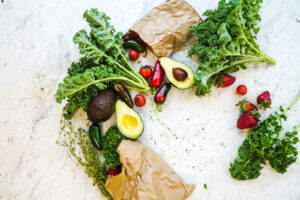
If you have AFib, there is no need to limit yourself to bananas when trying to increase your intake of essential minerals and nutrients. There are many other delicious fruits that are also high in magnesium and potassium.
Common fruits that are high in potassium:
- Avocado
- Guava
- Kiwi
- Banana
- Cantelope
- Pomegranate
- Apricots (dried or fresh)
- Honeydew melon
- Cherries
Common fruits that are high in magnesium:
Dried figs pack the biggest magnesium punch with over twice as much magnesium per 100 grams as other high magnesium fruits like avocados and bananas
- Avocado
- Banana
- Guava
- Kiwi
- Papaya
- Blackberries
- Raspberries
- Cantaloupe
- Grapefruit
Which vegetables are best for heart health?
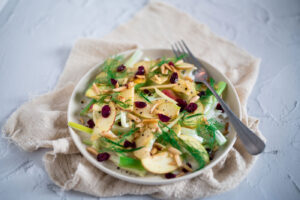 In 2017, The International Journal of Epidemiology published an analysis of 95 studies that looked at the effect of fruit and vegetable intake on heart health, cancer and longevity. The analysis found that eating at least 5 servings of fruits and vegetables per day was associated with a slightly lower incidence of heart attack and stroke. However, the benefit of vegetables was dose dependent and the analysis found that increasing fruit and vegetable intake to 10 servings (about 5 cups) per day cut the risk of heart disease by 28%. The fruits and vegetables that seemed to have the most impact were:
In 2017, The International Journal of Epidemiology published an analysis of 95 studies that looked at the effect of fruit and vegetable intake on heart health, cancer and longevity. The analysis found that eating at least 5 servings of fruits and vegetables per day was associated with a slightly lower incidence of heart attack and stroke. However, the benefit of vegetables was dose dependent and the analysis found that increasing fruit and vegetable intake to 10 servings (about 5 cups) per day cut the risk of heart disease by 28%. The fruits and vegetables that seemed to have the most impact were:
- Apples and pears
- Oranges and citrus fruits
- Green leafy vegetables and salads
- Cruciferous vegetables like broccoli, cauliflower, and cabbage
- Green-yellow vegetables (ex. green beans, peppers, and carrots) had a more prominent effect on lowering cancer risk than heart disease risk but are still packed with heart healthy essential vitamins, minerals and fiber.
If you have AFib and take warfarin (i.e. Coumadin or Jantoven) for stroke risk reduction, an increased intake of vegetables that are high in vitamin K (such as dark green leafy vegetables and cruciferous vegetables) can make your warfarin less effective at preventing blood clots and stroke. We always promote eating a healthy diet so do not let this deter you from eating vegetables if you take warfarin. Just make sure to talk to the healthcare provider that manages your warfarin if you make changes to your diet (i.e. increase/decrease vitamin K containing foods, like vegetables) so your warfarin dose can be adjusted accordingly.
What tea is good for heart palpitations?
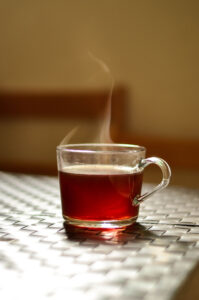 There are not any teas that have been clinically proven to be helpful for treating heart-rhythm abnormalities. There are some herbal remedies that are used in traditional Chinese medicine which may be helpful in treating palpitations and arrhythmias. These include Dan Shen, Wenxin Keli, and Shensong Yangxin. Herbs that may have antiarrhythmic properties are motherwort, barberry, and hawthorn. However, we do not recommend taking any of the herbal remedies or herbs for atrial fibrillation or atrial flutter because their safety and effectiveness are not widely known and they may interact with your atrial fibrillation medications and anticoagulant (blood thinner) to increase your risk for adverse events.
There are not any teas that have been clinically proven to be helpful for treating heart-rhythm abnormalities. There are some herbal remedies that are used in traditional Chinese medicine which may be helpful in treating palpitations and arrhythmias. These include Dan Shen, Wenxin Keli, and Shensong Yangxin. Herbs that may have antiarrhythmic properties are motherwort, barberry, and hawthorn. However, we do not recommend taking any of the herbal remedies or herbs for atrial fibrillation or atrial flutter because their safety and effectiveness are not widely known and they may interact with your atrial fibrillation medications and anticoagulant (blood thinner) to increase your risk for adverse events.
Chamomile tea, which is used to promote sleep, could indirectly benefit atrial fibrillation. Getting adequate, high quality rest is important for overall health and specifically, it appears to benefit atrial fibrillation. A 2018 study published in the journal Heart Rhythm found that poor sleep quality was associated with an increased risk of AFib. It appeared that this increased risk was present irregardless of sleep apnea treatment. Good sleep hygiene can promote a good night’s sleep. Recommendations for improving your sleep hygiene include:
- Consistency is important. Go to bed and get up at the same time each day (including weekends). Set your bedtime so you get at least 7-8 hours of sleep.
- Avoid eating food or drinking alcohol before bedtime.
- Avoid screen time (phone, tablet, computer, TV) for at least 30 minutes before bed.
- Adopt a bedtime routine that promotes sleepiness. This could include relaxing activities such as meditation, drinking chamomile tea, journaling, stretching or yoga.
- Exercise or be physically active during the day.
- Make sure your room is dark, quiet, and at a comfortable temperature.
Some people with AFib have found that caffeine can trigger an atrial fibrillation attack or make their atrial fibrillation symptoms worse. If you are one of these people, you may want to limit your intake of caffeinated tea. Black, green, oolong, and white teas all contain varying amounts of caffeine.
Is dark chocolate good for AFib?
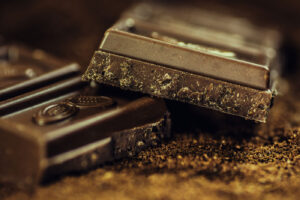 While dark chocolate is considered healthy for other heart conditions, it is not particularly helpful for atrial fibrillation. If you are someone who is very sensitive to caffeine, dark chocolate could actually trigger irregular heartbeats.
While dark chocolate is considered healthy for other heart conditions, it is not particularly helpful for atrial fibrillation. If you are someone who is very sensitive to caffeine, dark chocolate could actually trigger irregular heartbeats.
If you have atrial fibrillation, you should see a heart specialist (i.e. cardiologist or electrophysiologist). Atrial fibrillation treatment is most effective early in the disease process when the AFib is still intermittent (paroxysmal). Atrial fibrillation tends to progress, so don’t wait until you have persistent, chronic atrial fibrillation to get serious about your AFib treatment. Contact us today to see how Dr. Laws and the team at FixAFib can help you on your journey to becoming AFib free.
Sources
Voskoboinik A, Kalman JM, De Silva A, et al. Alcohol Abstinence in Drinkers with Atrial Fibrillation. N Engl J Med. 2020; 382:20-28.
Aune D, Giovannucci E, Boffetta P, et al. Fruit and vegetable intake and the risk of cardiovascular disease, total cancer and all-cause mortality—a systematic review and dose-response meta-analysis of prospective studies. Int J of Epidemiology. 2017 June;46(3):1029–1056. https://doi.org/10.1093/ije/dyw319
Christensen MA, Dixit S, Dewland TA, et al. Sleep characteristics that predict atrial fibrillation. Heart Rhythm. 2018 Sep;15(9):1289-1295.
American Academy of Sleep Medicine. Healthy Sleep Habits. https://sleepeducation.org/healthy-sleep/healthy-sleep-habits/ Accessed April 20, 2022.
Hung YC, Cheng YC, Muo CH, Chiu HE, Liu CT, et al. Adjuvant Chinese herbal products for preventing ischemic stroke in patients with atrial fibrillation. PLOS ONE. 2016;11(7): e0159333
Shen J, Johnson VM, Sullivan, LM, et al. Dietary factors and incident atrial fibrillation: the Framingham Heart Study. The American Journal of Clinical Nutrition. 2011;93(2):261–266

